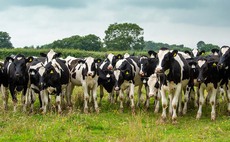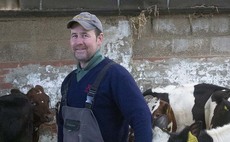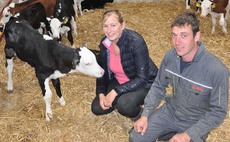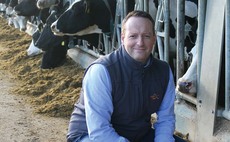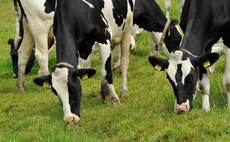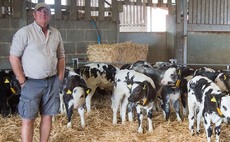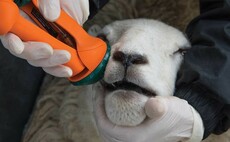Advice
Livestock
The potential to drive genetic gain, make more informed breeding decisions and improve efficiencies begs the question as to why you would not genomically test heifers.
Livestock
Feeding the right amount of a quality milk replacer so that heifer calves hit growth rate targets will positively impact on their performance once they enter the herd.
Livestock
Choosing a specially formulated calf milk replacer alongside top-notch management has helped one Dorset family to address issues with calf scours.
Livestock
Using sexed female and sexed male semen is helping one farmer optimise the value of every calf.
Livestock
Using ultrasound on calves’ lungs has helped one Powys calf rearer to pick up signs of respiratory disease earlier, target antibiotic use and reduce mortality.
Livestock
Segmenting the herd and targeting sexed female and male semen towards appropriate animals will help optimise any sexed and beef strategy.
Livestock
Genomic testing, together with targeted use of sexed semen on cows and heifers is part of a strategy to maximise the output from every cow space at Slough Court, Somerset.
Livestock
Fraser Jones thinks it is no coincidence cows are milking well, while calf immunoglobulin levels are the highest they have ever been.
Livestock
Genomic testing, together with targeted use of sexed semen on cows and heifers is part of a strategy to maximise the output from every cow space at Slough Court, Somerset.
Livestock
SCOPS, with the backing and support of the Moredun Research Institute, the National Sheep Association and the Sheep Veterinary Society, has issued a letter to the sheep sector with renewed advice to farmers to include the newer group 4 and 5 wormers in their worm control plans now.
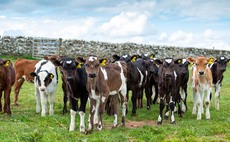
 18 August 2021
•
3 min read
18 August 2021
•
3 min read
